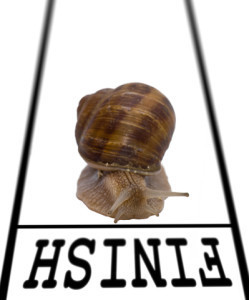Writing Tips – Get The Party Started

© Photocritical | Dreamstime.com
I don’t know if you’re like me, but every time I sit down to write, it’s like one of those old cars where you have to crank the engine before it comes to life. What is it about getting started that feels like such hard work? I love writing—LOVE IT—and once I’m started, I can sit there and type for hours. But getting started? It feels next to impossible.
In her book Is Everybody Hanging Out Without Me? Mindy Kaling mentions that her eight-hour writing work day consists of one hour of working. “The other seven hours are preparing for writing: pacing around the house, collapsing cardboard boxes for recycling, reading the DVD extras pamphlet from the BBC Pride & Prejudice, getting snacks lined up for writing, and YouTubing toddlers who learned the “Single Ladies” dance.” The first time I read that, I cracked up, because I do the same thing. I’m pretty sure we all do.
But let’s face it, if we want to be productive and get stuff done, we need to make ourselves start at some point. So here are a few tips for cranking that engine and getting a move on.
1. Pick a Time To Start And Stick With It – Back in the days when I had a day job to rush off to, the only way I could find time to write at all was to get some work done before I left for the office and to get a bunch done before I got to bed. The inflexibility of my free time meant that every morning by 5:45am, my butt would be in the chair and my fingers would be on the keyboard. I couldn’t make an exception or I would have no writing time at all.
The funny thing is, since becoming a full-time writer, I still feel a visceral need to have my butt in my chair and my fingers on the keyboard, if not at 5:45am, then at 6:45. More than three years of keeping to strict writing hours out of necessity actually shaped me into keeping those hours, even when the extent of my morning commute is from my bedroom to my living room.
Even Stephen King in his book On Writing says that it’s best to have a specific time that you write. If the muse knows where and when to find you, then you’ll be more productive. I’ve found this to be 100% true. It doesn’t matter when that time is. Find something that works best for you and your life, then stick with it. The sticking with it is key.

© Daniel Constantin | Dreamstime.com
2. Plan Ahead – Even before I crossed the great divide from being a pantser into being a plotter, I always knew what I was going to write before I sat down for any given writing session. Nowadays, since I am a plotter, I have an extensive outline that I work off of for any given book. I tend to read over the chapter in the outline that I plan to write that day, reminding myself of where I was going with things and what parts of the scene I want to hit with the most color. To me, that’s the equivalent of turning the crank on the old fashioned car.
But even before my outlining days, I made certain that I knew what I would be writing before I sat down to write. Often that meant stopping in the middle of a scene at the end of a writing session. That sense of the incomplete would spur me on to finish what I was excited about the day before so that I could be excited about it again. If that works for you, give it a try. I will say this, though, having your plan for the day written down is a powerful tool. I mean, we’re writers after all, right?
3. Challenge Yourself – Sometimes it’s just plain impossible to get the writing juices flowing though. Roadblocks and writer’s blocks get in the way and keep you from moving forward. That’s when it might help to do a writing sprint or to give yourself some other out-of-the box challenge.
I know a lot of writers who band together through media outlets like Facebook or Twitter to challenge each other to writing sprints. I love this idea. Not only does it provide you with a framework and guidelines for what the sprint might be (writing on a theme, shooting for a specific number of words, writing as much as you can in a given amount of time), it connects you with other writers who are in the same boat that you’re in. There’s nothing better for getting out of a rut then hanging out with your fellow writers, virtually or in reality.
I’m sure there are plenty of other ways we can rev our writing engines and get creating. These ones work best for me. What are some of your tricks?
.
Like what you’ve read? I love the fact that you read it! I’ve got more for you too. Sign up for my newsletter to receive special content, sneak-peeks, and treats that only subscribers are privy to. And thank you!



